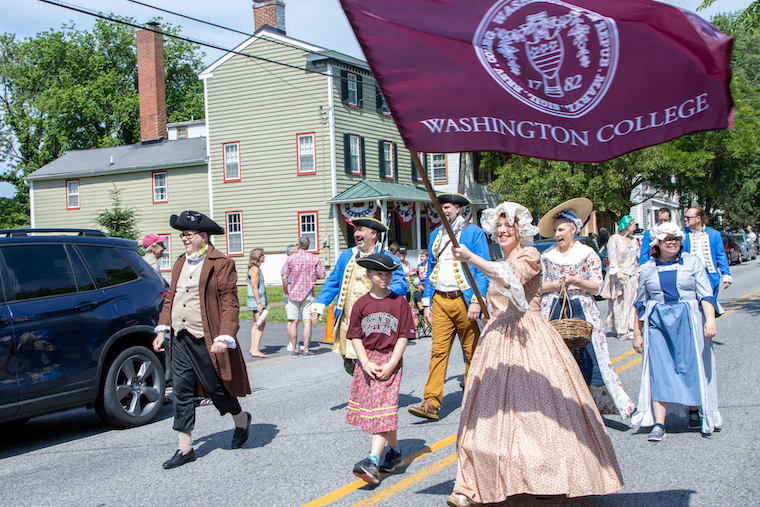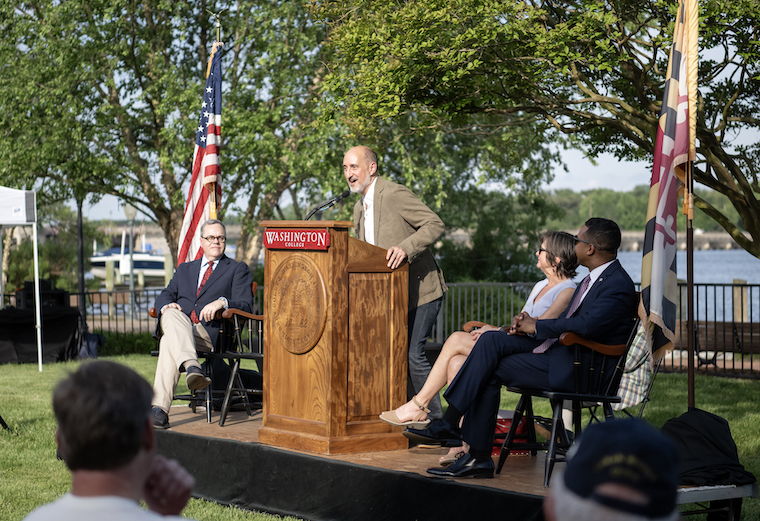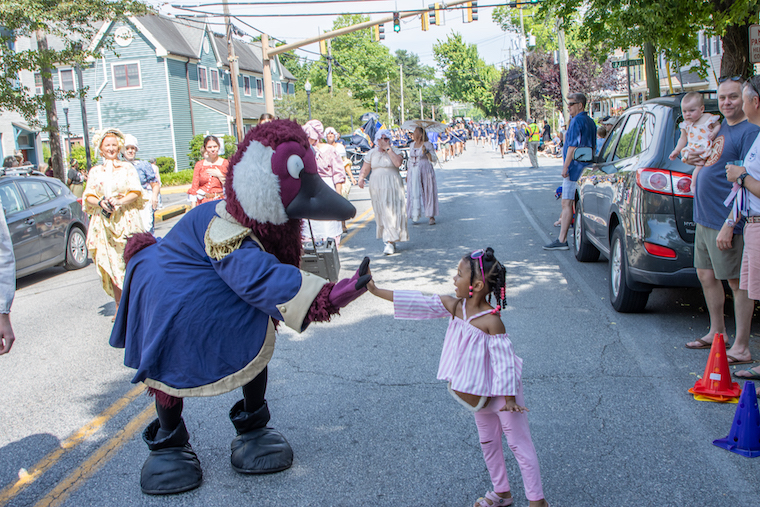Historical Revelations at Tea Party
Washington College celebrates with all of Chestertown at the annual Tea Party Festival, and Starr Center research adds detail to its history.

This past weekend, Washington College celebrated the 250th anniversary of the Chestertown Tea Party with historical revelations and costumed revelry.
On Thursday, ahead of the big annual weekend in Chestertown, the Washington College Starr Center for the Study of the American Experience co-sponsored a special commemoration of the Chestertown Tea Party Festival's semiquincentennial anniversary alongside the Maryland 250 Commission at the Custom House on the historic Chestertown riverfront. The free and public event drew a crowd to celebrate the town's most famous Revolutionary moment – a May 23 protest in 1774 where patriots supposedly stormed a ship carrying British tea and dumped it into the Chester River, mirroring the Boston Tea Party that occurred six months prior. The festivities attract thousands of visitors to Chestertown every Memorial Day weekend.

Before indulging in champagne and fresh local strawberries, event attendees were treated to a retelling of the festival's history as tracked through documents. Starr Center Hodson Trust-Griswold Director Adam Goodheart was joined by College President Mike Sosulski, Maryland Secretary of Planning Rebecca Flora, and Maryland Secretary of Service & Civic Innovation D. Paul Montiero, Jr. in offering remarks. The special commemoration marked the inaugural program of the Maryland 250 Commission's statewide celebration of America's semiquincentennial.
Goodheart unveiled a newly discovered 18th-century document offering fresh insights into the fate of the famous tea shipment, revealing it was in fact removed from the ship in secret before the colonists could discover its whereabouts.
“We still have plenty to celebrate,” encouraged Goodheart, after the crowd reacted with shock to the discovery that the famous tea was not in fact thrown into the river. “There is no doubt this was one of the first places in Maryland where community members came together in protest against British oppressors. That is worth celebrating.”
Goodheart went on to outline several instances of changemakers in Chestertown and Maryland's rich history, including the story of Josephine Carr who refused to move from the whites-only section on a passenger boat heading up the Chester River and, through protest and legal action, won her case against the segregation of public transport in Maryland.
Throughout the Festival, the Starr Center also offered exhibits at the Chesapeake Heartland: An African American Humanities Project Mobile Museum Truck, and a walking tour of local African American history.
Washington College's presence was also showcased this year when President Sosulski donned period garb and walked in the Festival parade. Sosulski was joined by his wife, Cori Crane, Gus the Goose, and several Washington College alumni, faculty, and staff.

Founded in 1782, Washington College holds a unique connection to the American Revolution. The first college chartered in the newly independent United States, it received personal patronage from George Washington. Many participants in the 1774 tea protest later became founding donors and trustees of the College.
Sosulski noted the College is excited to continue supporting this great local tradition, saying that Washington feels a deep resonance with the event's encouragement of civic engagement. “We see it as part of our mission,” he said.
- Dominique Ellis Falcon